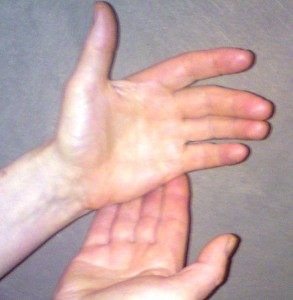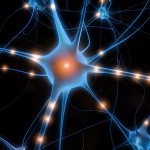 It is well known that psychological trauma of any sort can have a lasting, damaging effect on human beings. The earlier the trauma, the more profound the effect, so the impact of a difficult birth on the infant as he develops into a child and adult can be especially significant.
It is well known that psychological trauma of any sort can have a lasting, damaging effect on human beings. The earlier the trauma, the more profound the effect, so the impact of a difficult birth on the infant as he develops into a child and adult can be especially significant.
The Birth Experience
Imagine being a fetus. Imagine floating comfortably in the warm, soft, dark, fluid space of your mother’s womb, drifting in and out of sleep, surrounded by muffled sounds and heartbeats.
Then imagine the sudden shock of being awakened, and pushed and squeezed into the harsh, stark, and noisy outside world, amid your mother’s pained shrieks, racing heart, and adrenalin charged system.
Add to that the strain of an unusually long labour, painful forced delivery, or a life threatening situation, such as being strangled by the umbilical cord, and you have a major traumatic event. Then add the inevitable distress of the mother, to whom the baby is psychologically and energetically linked, and you have a super trauma.
And try to imagine, on top of all that, the added distress on the newborn infant of being removed from the mother for emergency treatment: the infant’s or hers.
What an incredibly cruel, loveless, unpredictable and scary place the world would seem to the distressed newborn.
That is the experience and sensation that is imprinted onto the traumatised neonate’s untainted mind. A newborn’s immature nervous system is purely unconscious mind, combined with life or death driven emotion, so it does not have the cognitive capacity to be able to sort experiences and make sense of the world in a logical, conscious way. Its mind is like a blank sheet on which is printed the first experiences. And this imprint becomes the blueprint on which the child’s life and future experiences are fashioned.
Long Term Psychological Effects
Children who have had traumatic births are more likely to be anxious or aggressive than their easy-birth counterparts. Of course genetics and many other factors come into the equation too, but, if all else was equal, the child who was traumatised at birth would be more vulnerable to psychological problems.
Separation from the mother at birth, as well as the mother’s own post-trauma stress response, can affect the early bonding between the mother and child, which is another major factor in the child’s psychological development.
As a clinician, whenever I am presented with a highly anxious, angry, or oppositional child, I always ask the parents about the child’s trauma history, including their birth experience. Actually I do this with my adult clients too. And very often the links are obvious.
Effective New Treatment
Modern psychological treatment can help to correct the psychological damage of a traumatic birth. Therapies such as EMDR [Eye Movement Desensitization and Reprocessing], EFT [Emotional Freedom Technique], and AIT [Advanced Integrative Therapy] are particularly powerful.
I mainly use AIT in my practice today, and find that it is incredibly effective for dealing with the effects of early trauma. AIT uses kinesiology, or muscle testing, to help the clinician and the client communicate with the client’s unconscious, to determine which early traumas might be affecting them in the present. I find that traumatic births are indicated quite often.
The really good news is that clearing the birth trauma with AIT is quite simple and straightforward, and once the early traumas and their links to presenting problems are cleared, and the blueprint is recreated with a clear, conscious mind, the client is able to let go of lifelong symptoms, such as excessive anxiety, fear of abandonment, anger and control issues. This is incredibly exciting stuff.
Lorri Craig practices AIT in her own private practice in Brighton and Hove, UK, and internationally by phone or Skype. To find out more about AIT go to the article on this site: WHAT IS ADVANCED INTEGRATED THERAPY?
Image thanks to arztsamui at freedigitalphotos.net


